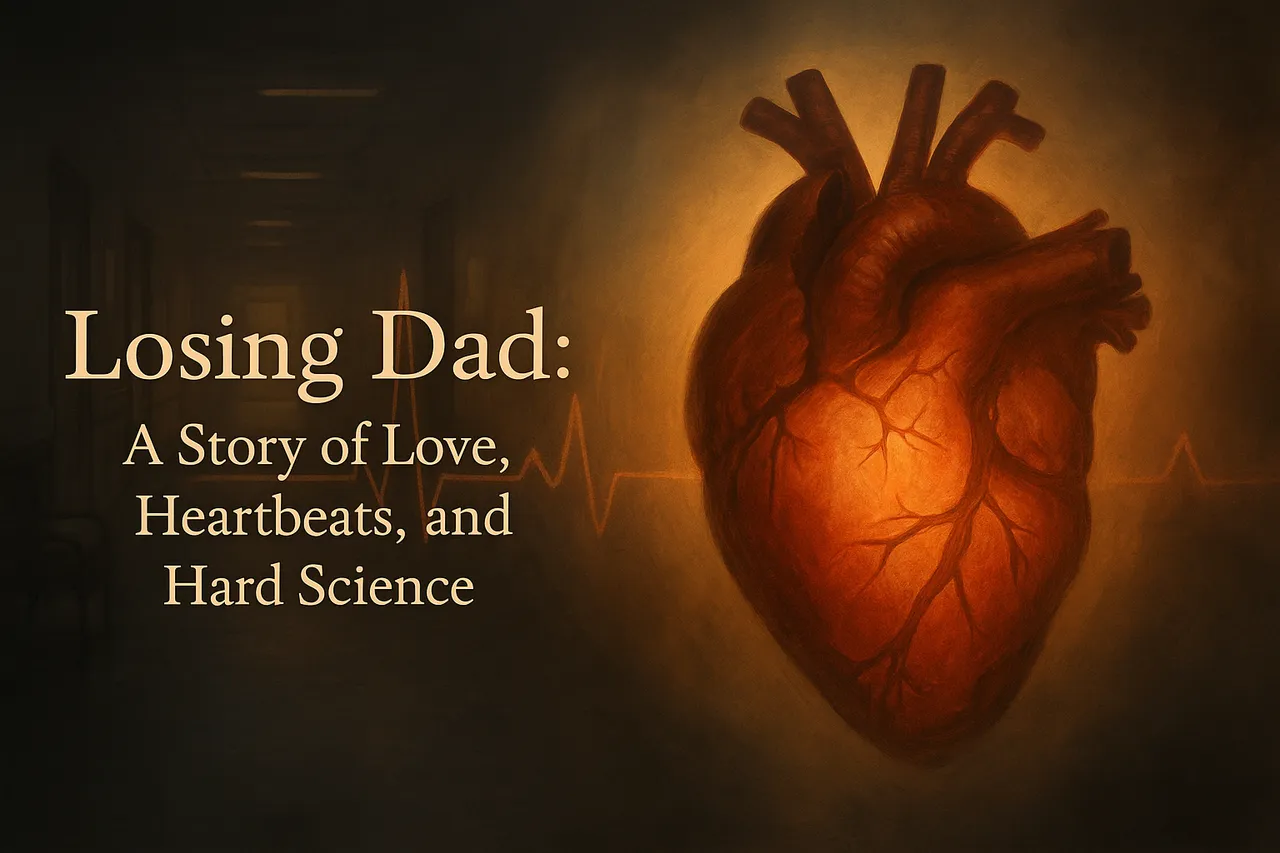It’s been just a week since I lost my father. The house still echoes with his laughter, his familiar shuffling steps, and that signature throat-clearing he did before starting any serious conversation. But the silence now is deafening. It's almost like a part of me was buried when I left his grave.
My father had been living with arrhythmia for the past 15 years. For those unfamiliar, arrhythmia is a condition where the heart beats irregularly. either too fast, too slow, or in a chaotic rhythm. His was a persistent type that required lifelong monitoring. He sometimes fainted unexplainably, but he was strong-willed. We managed it well, keeping up with regular cardiologist visits, EKGs, and medication adjustments. Still, about three months ago, he suffered a transient ischemic attack (TIA), a mini-stroke caused by temporary blockage of blood flow to the brain.
We were lucky then. The TIA reversed quickly, thanks to prompt intervention at the same emergency unit where he had just given up the ghost. But things were never quite the same. His medications were modified. He was prescribed Amlodipine, Atorvastatin, and Hydrochlorothiazide (HCT). Each of these had a distinct purpose when I did my findings. Amlodipine functions to ease blood vessels and reduce blood pressure, Atorvastatin to control cholesterol levels, and HCT helps rid the body of excess fluids and salt through urination. It was the typical cardiovascular cocktail from a medical pov, and he took them religiously.
But over the weeks, new symptoms emerged. His pulse began to drop, a condition known medically as bradycardia. Imagine your heart slowing down to a crawl, struggling to pump enough blood to keep your organs alive. Though he seemed stable on the outside, something was clearly wrong. Then came the complaint about his stomach. He described it as a strange discomfort, something deeper than indigestion.
Soon, he began experiencing difficulty breathing. At first, it was minor. But within days, he could barely manage two steps without gasping for air. We knew it had escalated. We rushed him to the emergency section of our local teaching hospital, a place we’d become all too familiar with.
The emergency ward was full, and we had to wait for a vacant bed. Finally, after hours, he was admitted. The doctor did a quick assessment and dropped a term that left my heart cold: heart failure. Specifically, congestive heart failure, when the heart becomes too weak to pump blood effectively. The fluid backup causes swelling and, worse, pulmonary edema, otherwise known as fluid accumulation in the lungs.

That explained his breathlessness. With each heartbeat, the fluid-filled lungs made oxygen exchange more difficult. His oxygen saturation was low, and he needed immediate relief. The doctor ordered intravenous administration of Furosemide, a potent loop diuretic. Furosemide works by signaling the kidneys to excrete more sodium and water, effectively reducing fluid buildup in the lungs and easing the heart's burden.
Unfortunately, during the process, he fainted. His blood pressure dropped rapidly. Findings show that this is a known risk with powerful diuretics like Furosemide, especially when administered too quickly. The medical staff scrambled. But in the absence of a standby oxygen tank, there was no backup to support his failing respiratory system.
He passed away in that moment of chaos.
As someone who takes environmental sustainability seriously, the irony wasn’t lost on me. I had always focused on big-picture issues such as carbon emissions, water conservation, and plastic waste. Yet, here I was, helpless in a system broken at the most fundamental level, human care. His death wasn't just about heart failure, it was a failure of preparedness, of protocol, and of access to life-saving basics like oxygen.
After a bit of research, I've realized some important takeaways from my father’s story. First, heart failure is often misunderstood. It doesn't mean the heart stops suddenly. It means it struggles gradually, weakening with time, and it can be managed if caught and treated appropriately. Arrhythmia, when long-standing, increases the risk of heart failure. Coupled with a stroke, the cardiovascular system enters a critical state.
Second, medications play a pivotal role but come with risks. Amlodipine can sometimes cause fluid retention, ironically compounding heart failure in rare cases. Atorvastatin, while protective, may cause muscle pain or liver strain in some individuals. HCT and Furosemide deplete the body of potassium and sodium, electrolytes essential for cardiac rhythm.
Therefore, it is important that patients on such meds have regular blood tests and cardiac monitoring. In the absence of that, the very drugs meant to save lives can complicate conditions.
Lastly, the Nigerian hospital systems need systemic improvements. Emergency wards should never run out of oxygen tanks. Triage systems must prioritize high-risk cardiac patients. Training should include simulation drills for diuretic-induced hypotension and other critical health conditions that require quick actions.
My father didn’t die just because his heart gave out. He died because the system failed to catch him when he fell. As I write this, it feels like I’m still grasping for breath, trying to make sense of it all. But if sharing this story helps just one person recognize the warning signs early, or prompts a hospital to stock one more oxygen tank, then perhaps his death won’t be in vain.
I miss him every day. But in every beat of advocacy, every pulse of awareness I raise, he lives on.